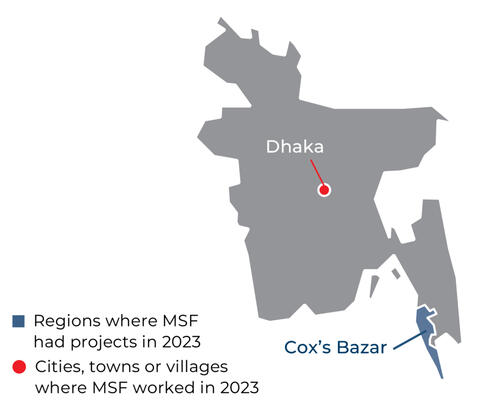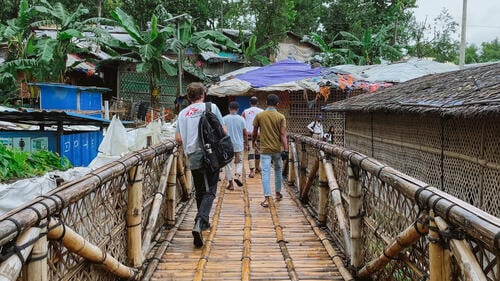Around 1 million Rohingya refugees are living in Cox’s Bazar, which has hosted refugees from Myanmar since 1978. As violence continues in Rakhine state, Myanmar, people continue to flee across the border to Bangladesh. They arrive to Cox’s Bazar’s over-cramped living spaces and lack of basic services, finding themselves reliant on humanitarian aid for survival.
We are on site in Cox’s Bazar, running three 24/7 hospitals and supporting in five other health facilities. Our teams provide free of charge services like family planning, neonatal intensive care, mental health support, and non-communicable disease management.
In Bangladesh’s capital city, Dhaka, where MSF first worked in 1972, we are running a clinic for local communities in the Kamrangirchar neighbourhood. We also support the Kamrangirchar hospital by providing sexual and reproductive health services. As a low-lying coastal country, Bangladesh is exposed to severe flooding and monsoons. Our teams are prepared to support national authorities during flooding emergencies.
Our activities in 2023 in Bangladesh
Data and information from the International Activity Report 2023.
2,012
2,012
29.8 M€
29.8M
1985
1985


628,300
628,3
40,800
40,8
24,000
24,

5,270
5,27
- Try a different country, year, format, or topic.
- Clear one or more filters



